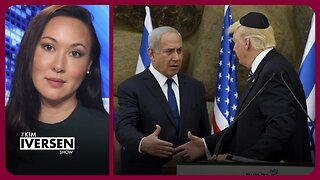Premium Only Content

U.S. forces carry out additional strikes against Iran-backed militia in Iraq.
Title: Unveiling the Escalation: U.S. Forces' Additional Strikes Against Iran-Backed Militia in Iraq
Introduction:
In recent geopolitical developments, the Middle East has once again found itself at the center of international attention as U.S. forces carry out additional strikes against Iran-backed militia in Iraq. This dissertation aims to dissect the implications, motivations, and potential consequences of these escalated military actions, shedding light on the complex web of relationships in the region.
Historical Context:
To understand the current events, one must first delve into the historical context of U.S.-Iran relations and the intricate dynamics within Iraq. The relationship between the United States and Iran has long been marked by tensions, fueled by ideological differences, geopolitical ambitions, and regional power struggles. The presence of Iran-backed militias in Iraq adds another layer of complexity, intertwining local conflicts with broader regional rivalries.
Motivations and Objectives:
The decision to carry out additional strikes signals a strategic move by U.S. forces, aiming to address perceived threats emanating from Iran-backed militias. The motivations behind these actions may range from safeguarding national security interests to deterring potential aggressors. Additionally, these strikes may serve as a response to prior incidents that threatened U.S. personnel or assets in the region.
Regional Ramifications:
The ripple effects of such military actions extend beyond the borders of Iraq. The delicate balance of power in the Middle East is at stake, with potential repercussions impacting regional stability and alliances. Neighboring nations and global actors are likely to closely monitor developments, as the situation has the potential to influence diplomatic relationships and alter the geopolitical landscape.
International Response:
The international community's response to these strikes is crucial in shaping the trajectory of events. Diplomatic efforts, sanctions, or condemnations may follow as nations navigate the delicate task of balancing alliances and geopolitical interests. The reactions of key stakeholders, such as European nations, Russia, and China, will play a pivotal role in determining the global response to the escalation.
Conclusion:
In conclusion, the U.S. forces' decision to carry out additional strikes against Iran-backed militia in Iraq marks a critical juncture in the complex geopolitics of the Middle East. The intertwined historical, regional, and international dimensions of this situation underscore the intricate challenges faced by policymakers. As the world watches and holds its breath, the consequences of these actions remain uncertain, leaving the potential for diplomatic solutions as the preferred path to avert further escalation and foster stability in the region.
-
 5:44
5:44
DropItLikeItsScott
11 hours agoA Must Have Shotgun - GARAYSAR Fear 116
9272 -
 56:14
56:14
PMG
17 hours agoHannah Faulkner and John Strand | BLANKET PARDON FOR ALL J6er's
1.61K2 -
 48:51
48:51
State of the Second Podcast
14 hours agoWhy Does Palmetto State Armory Keep Winning?
1.57K2 -
 32:01
32:01
SB Mowing
25 days agoHer Tears Said It All: “My Prayers Have Been Answered”
25.6K35 -
 3:28:55
3:28:55
Price of Reason
13 hours agoTrump Means Business! Disney's F4 Hail Mary Pass! Assassin's Creed Shadows Art Book SUCKS?
64.1K13 -
 8:00:07
8:00:07
SpartakusLIVE
11 hours ago#1 Shadow BANNED Hero
37.6K -
 2:17:46
2:17:46
Kim Iversen
12 hours agoTrump To SMUG Netanyahu: Let's Clear “All” Palestinians From Gaza! | RFK Jr, Tulsi Move On To Round Two
85.6K441 -
 30:25
30:25
Standpoint with Gabe Groisman
1 day agoDemocrats Are Stalling Trump Appointments with Senator Rick Scott
101K24 -
 1:00:24
1:00:24
The StoneZONE with Roger Stone
12 hours agoAnthony Fauci’s Brutal History Of Animal Torture Exposed! | The StoneZONE w/ Roger Stone
72.6K20 -
 1:03:38
1:03:38
Man in America
13 hours agoUSAID Corruption, $21 TRILLION Missing, & the End of the US Global Empire?
101K70